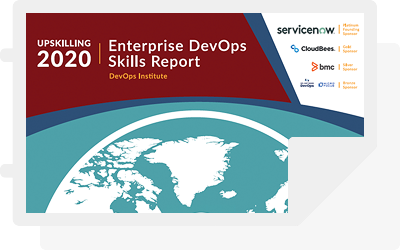DevOps is no longer just an emerging field. I think we can all agree that it’s arrived. One such indicator is Puppet which has begun creating an annual report that tracks DevOps salary trends in addition to their annual State of DevOps report. This salary overview is in its fifth iteration since the 2018 DevOps Salary Report was released this year. What does this outlook suggest to those working in the field, those who want to work in the field and businesses otherwise looking to implement DevOps? Keep reading to find out.
The DevOps Salary Report
The salary report is designed to reveal trends about how DevOps is impacting the business world through the scope of salaried positions and their momentum. In previous versions, manager salaries were compared against practitioner salaries. This year additional categories have been added, including:
- Department
- Industry
- Region
- Gender
- Those part of a minority group
- Company revenue
The study surveyed more than 3,000 individuals in the field today.
What Was Learned?
The primary findings include an overall increase in DevOps salaries, but manager salaries have continued a steady decline year over year. When it comes to manager and practitioner salaries, America continues to be the best-paying country to start a career in DevOps. According to Puppet’s findings, 64% of Americans in DevOps roles are paid more than $100,000. The next closest international competitor comes in around 30%.
While manager salaries are declining, practitioner salaries are trending up all around the world. This is largely a result of other countries, outside the US, increasing practitioner pay in a global effort to compete with American DevOps efforts. As such, America’s pay hasn’t increased significantly since 2017, but the climate of friendly competition has pushed salaries up worldwide. In the United States, it’s found that fewer than 6% of the people surveyed made less than $50,000. The indication is the American DevOps market is strong enough to offer competitive salaries, even for entry-level positions.
That said, a pay gap is apparent between women, minority salaries and those of their white counterparts, but trends suggest it may be narrowing on all accounts. While the number of women in the field appears to be growing, a gender pay gap was discovered. Across the world, women are almost twice as likely as men to find themselves making less than $50,000. In the US, startling numbers show only 3% of men make less than $50,000, compared to 23% of women respondents. Conversely, of people making over $100,000, 62% are men and only 26% are women. These findings suggest the US has a lot of work to do when it comes to gender pay equality.
Those who identify as minorities still make less than those who don’t, also. The good news is minorities are reporting, in lower numbers than last year, making less than $50,000 and, in higher numbers than last year, making more than $125,000. It’s a wage trend that suggests the gap has begun to close. However, there’s a long way to go before it does, considering 26% of minorities still report making less than $50,000, while only 22% of minority group practitioners make over $125,000. The majority of people who fall into this group make between $75,000 – $100,000. Meanwhile, 57% of non-minority respondents in the US made between $100,000 – $250,000.
While the gap is clear and alarming for both women and minorities, the report also suggests these two groups make a higher salary in America than in other super-power countries surveyed. The same trend holds true for all salaries. In general, the US and the UK are paying better than Asia and the rest of Europe when it comes to compensating DevOps practitioners.
Another key outcome is learning that healthcare and pharma are the industries willing to pay the most for skilled DevOps people. The survey uncovered that these industry sectors have the most employees making over $100,000. However, if you’re in America, technology is the highest paying sector you can be in, and there’s room for growth. All trends suggest the DevOps employment market will continue to bloom and change as adoption makes its way to status quo.
Role and Salary Trends
In an earlier blog post, we looked at DevOps titles and roles, there are a couple of notable reasons why isolating titles and roles in DevOps for the purposes of tracking salary evolution is a little tricky:
- For one, DevOps mindset should belong to everyone in an organization, and isolating it to a few roles with DevOps titles can be counterintuitive to disrupting silos with DevOps.
- Another concern is that DevOp titles may be professionally limiting, should DevOps fall to the wayside like so many technological trends before it.
That being said, most companies have acknowledged a need for titles and roles in DevOps, and getting familiar with those can help enterprises learn how to price salaries, or help practitioners learn how to advance their careers. Some kind of titles and the roles they fulfill, with respective salaries, are as follows:
| Titles | Role | Average Salary (according to glassdoor.com) |
| DevOps or Platform Engineer | DevOps evangelism | $115,666 |
| Build Engineer, UX Designer, Configuration | Automation orchestration, software testing, deployment | $90,697 – $93,958 |
| Reliability Engineer | Security across multiple systems | $93,826 |
| Release Manager, Release Engineer | Leads release proceedings, provides oversight and guidance | $93,958 |
| Data Analyst, QA Analyst | Collects, organizes and interprets data for business use | $67,377 |
| Product Manager | Assures product meets brand standards for production and quality | $113,886 |
While there’s no consensus on how to best label DevOps practitioners, one thing that’s for sure, in America, at least, is that the field is a valued and high demand profession, that is often compensated accordingly.
There are certain skill sets that may be weighted even more desirable. When considering a future in DevOps, if you want to make the top dollar you can plan your education and experience accordingly. The following skills all pay more than $100,000 in practitioner salaries, according to Dice’s 2017 survey:
- Ansible
- KornShell
- Jenkins
- Puppet
- Chef
- Vagrant
Specializing in any of the above areas could lead you to a bigger paycheck or more opportunities with high paying organizations. When considering a career in DevOps, its good to consider your hard and soft job skills, as well as potential educational specializations and what’s relevant to the DevOps market in your community.
Sum It Up
Competition appears to be strong in the field of DevOps, and demand is not winding down just yet. For those looking to go into DevOps, this could be an excellent time to begin your career. For enterprise businesses, digital transformation is practically a requirement in a DevOps driven era. There’s no getting around that DevOps is here.
The fifth salary report by Puppet confirms this assertion. It shows a global increase in practitioner salaries, while management salaries continue to decline. That said, in organizations that have proven executive management to be invested heavily in supporting DevOps practitioners, the executive manager salaries remain largely stable.
America has risen to become a competitive leading force in DevOps and has compensation that matches. The study, however, did uncover unfortunate gaps that reveal inequitable pay impacting women and minorities the most. The gaps are getting smaller and smaller each year, so that’s a trend worth celebrating.
As we continue to pave the way for a new DevOps job market, more thought will likely be given to titles and roles. The current conversation around job titles is they pose a bit of a conundrum for organizations who truly want to embrace the culture that comes along with a DevOps mindset. Organizations will need to learn to create appropriate titles for their employees, who currently are getting used to living in a climate of nuance.
Ultimately, the Puppet salary report, combined with what we already know about DevOps, reminds us of the importance of understanding the personal worth of ourselves and our employees. Go forth with this information and make the DevOps business community a better and more competitive place. As always, if you need assistance with your DevOps organization, contact BMC today.







